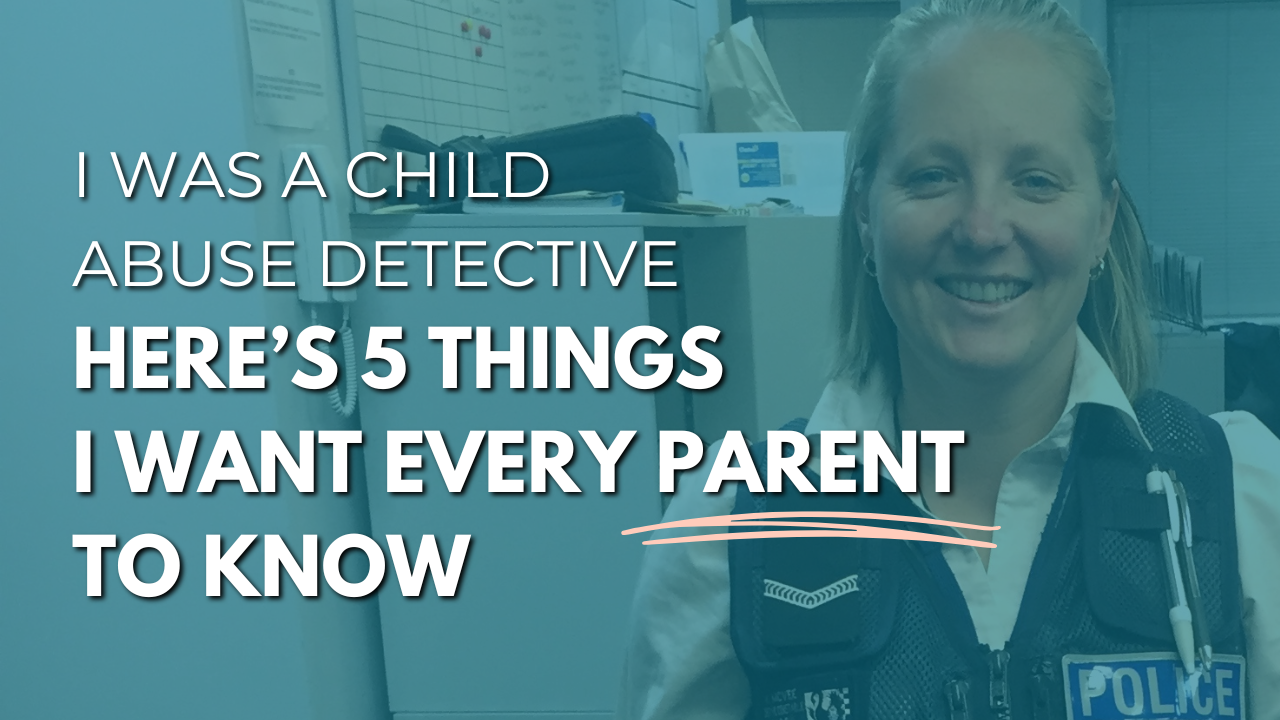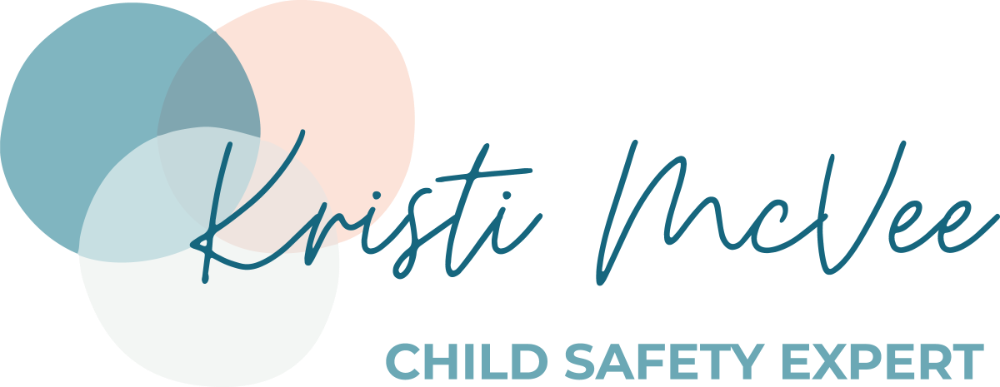I was a Child Abuse Detective – Here are the 5 things I want every parent to know
Jun 12, 2025
Before I became a police officer, I didn’t know much about child sexual abuse. It just wasn’t something people talked about when I was a child growing up or as I became a parent myself.
I joined the WA Police before my daughter had turned 2-years-old and she grew up with me in the blue uniform, helping people - especially kids, witnessing me transition from Constable to Detective to eventually retiring after 10 years in the force.
She was only 3 years old when I undertook the training to become a specialist child interviewer – a specially trained officer who obtains a child or vulnerable person’s evidence for court.
Nothing could have prepared me for that very first day of training. The chilling statistics, the stories but worse of all, the video of a child sex offender explaining in vivid detail how he groomed and manipulated children and their families so he could abuse them.
As my daughter nears adulthood, I am so grateful for that knowledge and training. It ultimately changed how I parented and protected my child from abuse, but back then, I was petrified and for good reason.
After interviewing, investigating and reviewing 100’s of child sexual abuse cases and then managing child sex offenders after they were released from prison, here is what I wish EVERY parent knew.
- Abuse doesn’t skip “good” families.
The number of times I’ve heard “we never thought it would happen to us” by the parents of children sitting across an interview table from me? Too many. Abuse doesn’t check for postcode, parenting style, or picture-perfect family photos. It doesn’t stop at the families who love their kids or who have the latest and greatest toys or gadgets.
It hides in plain sight. In fact, it counts on it. Don’t assume your love alone is enough to keep your child safe - protection takes awareness and action.
It takes acknowledging that at least 1 in 3 girls and almost 1 in 5 boys will be a victim of child sexual abuse before they reach the age of 18 years and that 28.5% of Australian adults (more than 1 in 4 of your friends and family members) have been sexually abused.
Child sexual abuse doesn’t JUST happen in other people’s families, it happens in every family, and you only have to pull back the curtains a little to find out. Source: www.acms.au - Not everyone’s a predator… but anyone could be.
It’s rarely strangers in white vans handing out lollies, as my mother taught me. Most abuse happens at the hands of people kids know, trust, and even love. Family members. Babysitters. Step-parents. Friends. Teachers.
In fact, approximately 90% of all child sexual abuse is by someone known to them.
Don’t teach your child to fear the world - teach them to understand their rights in it, and how to recognise unsafe or ‘tricky’ behaviour no matter who it comes from. - “Kids being kids” is not always harmless.
When children show sexualised behaviours beyond what’s age-appropriate, it’s a red flag - not a phase. Research and studies estimate that 30 – 50% of ALL child sexual abuse is by another child.
It’s not about shaming them, but we can’t ignore it. Be curious, stay calm, and take it seriously. Because ‘what if’ something has happened, and we just don’t know it yet.
Inappropriate adult content has also increased the number of kids harming other kids and ignoring it can allow cycles of harm to continue - for your child or for others. We need to protectively interrupt these behaviours, supervise children of all ages along whilst investigating why these behaviours are occurring. - Your gut is never just a gut feeling.
It’s your subconscious noticing what your conscious mind can’t quite explain yet.
If someone or something makes you uneasy around your child, in fact, any child - trust it. Every single time I’ve seen parents regret not acting on their gut, it was already too late.
Grooming is perverse and distracts you from the abusers’ intentions, all whilst trying to trick you into believing they are a good person and safe to be around your child. - If you don’t teach it, the 3 P’s will: Peers, Predators, or Porn.
You can’t afford to wait. Kids are already learning - on playgrounds, in group chats, through YouTube and online games. The average age of a child being exposed to porn for the first time is between 8-10 years old, but in lots of cases it’s younger.
If the safe adults (you) aren’t teaching about body safety, consent, and boundaries, someone else is. And that someone may not have their best interests at heart.
In my experience, the children who had a ‘safe’ adult in their lives, who talked to them about ‘tricky’ behaviours and body safety, were quicker to report abuse and to seek help than the children who didn’t. It’s vitally important to ‘be’ someone your kids can come to with the tough questions. It reduces harm and protects them!
The good news: we can protect our kids from abuse.
Awareness and education empower our kids and families to identify inappropriate or unsafe behaviours and empowers our parenting to set and enforce safe boundaries. We also don’t need to talk about ‘abuse’ to be able to teach about ‘abuse’.
Predators rely on our child’s naivety and our discomfort on discussing these topics with them to abuse them. But let me share a little secret – strong, educated and empowered kids are their kryptonite.
Want to know more about how to talk to your kids about these topics without scaring them? Check out the rest of my website and my Conversations with Kids Body Safety cards for how to have age-appropriate conversations that will keep them safe. www.cape-au.com/conversations-with-kids-body-safety
Don't let your fear of abuse or your discomfort around this topic, stop you from discussing it and protecting your kids against it.
Kristi x


